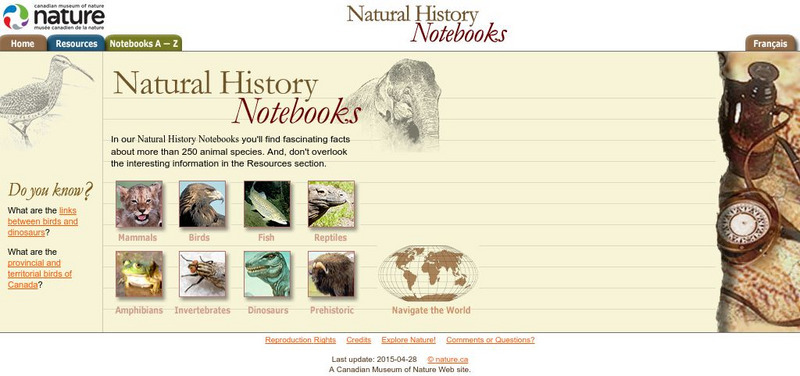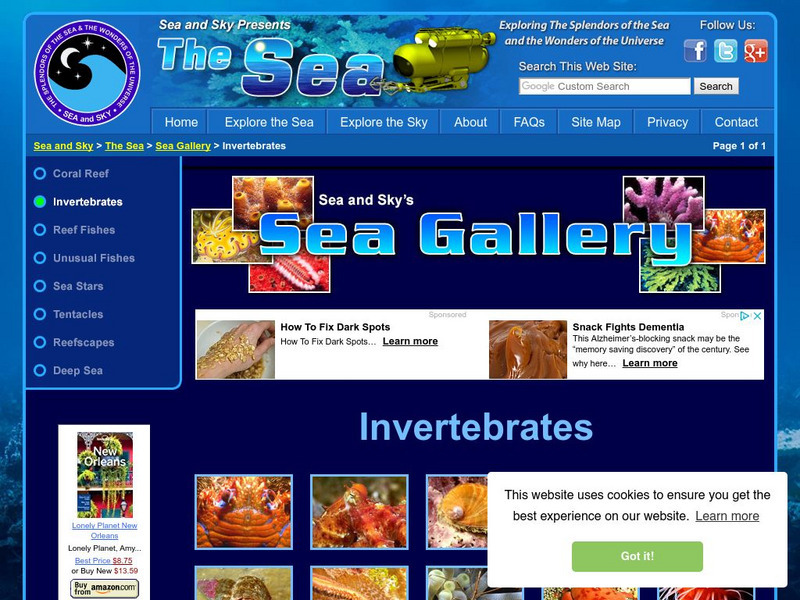Curated OER
Invertebrates
Young scholars identify the characteristics common to all animals. In groups, they compare the characteristics between the animals and how they are divided. To end the lesson, they compare the eight phyla of invertebrates and review...
Curated OER
What Animal Am I?
Pupils brainstorm different characteristics of invertebrates and investigate invertebrates by conducting Internet research.
Curated OER
Vertebrates And Invertebrates
In this science lesson, learners classify pictures into categories of vertebrates or invertebrates. After a class discussion, students divide into groups, and are given plastic baggies that contain photographs of each. The groups must...
Curated OER
Diversity of Life
Students explore the diversity of life forms and the role that interdependency plays in our world through a mult-segmented unit. This segment introduces the unit.
My Learning
My Learning: Minibeasts
All you need for an in-depth study of invertebrates is here on this site. Includes worksheets, quiz, useful information, and a fun interactive section where you can build your own super bug!
Smithsonian Institution
National Museum of Natural History: Department of Invertebrate Zoology
Search the Invertebrate Zoology Collection, and read about original research performed on all 30 major invertebrate animal phyla except insects.
Other
The Bug Club: Bug Pets
The Bug Club for young entomologists offers answers to insect questions, a colorful newspaper, and invertebrate caresheets if you're interested in keeping bugs as pets.
American Museum of Natural History
American Museum of Natural History: Invertebrate O Logy Card
Flip this interactive OLogy card to find questions and answers, fast facts, and other bite-size pieces of information to help you understand important characteristics of invertebrates.
Enchanted Learning
Enchanted Learning: Giant Squid
What makes a giant squid unique? This site features a diagram and some information about this cephalopod. Students can learn about the giant squid's anatomy, diet and more through this resource.
PBS
Pbs Nature: Octopus
Come and discover what octopi eat and where they live when you visit this resource. Students and teachers will benefit from this clear and concise presentation of information.
Canadian Museum of Nature
Canadian Museum of Nature: Natural History Notebooks
This site from the Canadian Museum of Nature, a natural history museum, provides short information blurbs and fun facts on over 240 different common animals categorized by type (mammals, fish, reptiles, invertebrates, amphibians,...
Other
Sea Gallery: Invertebrates
Dive into a virtual gallery of invertebrates found in the sea. Discover how these creatures get around and find their next meal.
BiologyWise
Biology Wise: Parasitic Flatworms
Describes types of flatworms that are parasitic to humans and animals and what their life cycle looks like. Two or more hosts are needed for them to complete their life cycle.
BiologyWise
Biology Wise: What Are the Different Types of Flatworms
Describes the basic characteristics of three of the major kinds of flatworms, including tapeworms, planarians, and flukes.
BiologyWise
Biology Wise: Vertebrates and Invertebrates
The characteristics of vertebrates and invertebrates are described here. Includes a list of examples for each group and a chart highlighting their differences.














